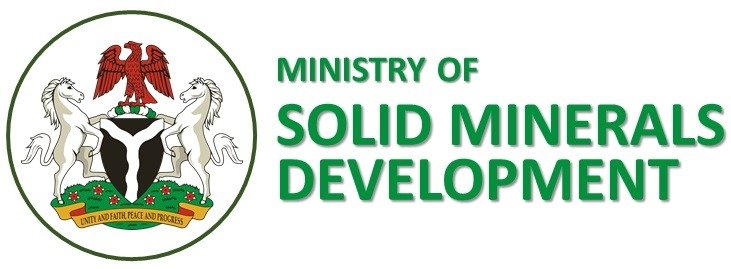Overview of Nigeria’s Mineral Wealth
Nigeria is endowed with a vast array of mineral resources that position it as a notable player in the global mining industry. With a rich geological diversity, the country holds a multitude of minerals, including but not limited to gold, tin, limestone, coal, iron ore, and various gemstones. Each of these minerals is distributed across different regions, with notable mining activities observed in states such as Zamfara, Plateau, and Kogi, where gold, tin, and limestone are predominantly extracted.
Gold deposits, for instance, are scattered in several locations, particularly in the northern regions, attracting both local and international investors. Tin, which has a strong historical significance dating back to colonial times when it was a major export, is still mined extensively in Plateau State. Limestone, essential for cement production, can be found in various states, including Ogun and Benue, supporting the growing construction sector in Nigeria. Additionally, coal reserves primarily located in Enugu State are crucial for energy production and have the potential to contribute significantly to the country’s energy needs.
Unfortunately, despite this wealth of mineral resources, Nigeria’s mining sector remains largely underutilized. The historical context reveals that mining has evolved from an informal and artisanal practice to a more structured industry; however, many challenges continue to hinder its growth. Factors such as inadequate infrastructure, regulatory hurdles, and limited exploration investment restrict the fully realized potential of these resources. The need for targeted exploration and development is paramount, as it can not only foster job creation and technological advancement but also stimulate economic growth, thereby improving the standard of living for many Nigerians.
Recognizing these opportunities is crucial for attracting both domestic and foreign investments, which are necessary to harness the mineral wealth effectively. Stakeholders in the mining sector must collaborate to create strategies that promote sustainable mining practices while addressing the socioeconomic challenges faced by local communities.
Investment Landscape in the Solid Minerals Sector
The investment environment within Nigeria’s solid minerals sector reflects a mixture of opportunity and challenge, greatly influenced by the existing legal and regulatory framework. The Nigerian government has put significant emphasis on the potential of its mineral resources to diversify the economy away from oil dependency. Currently, the Ministry of Mines and Steel Development plays a pivotal role in shaping policies that attract both local and foreign investments. These policies have been designed to support mineral exploration and extraction processes, thereby instigating a more liberalized and structured investment climate.
In recent years, various incentives have been introduced, including tax holidays, import duty exemptions for mining equipment, and access to capital through government-backed financing schemes. The Nigerian government aims to generate substantial foreign direct investment (FDI) in this sector while ensuring that regulations are in place to protect investors’ interests and promote sustainable practices. Essential initiatives, such as the Nigeria Minerals and Mining Act and the National Mineral Policy, lay the groundwork for transparent operational guidelines, underscoring the government’s commitment to combating illegal mining and promoting formalized structures.
Despite these advancements, challenges persist. Investors often cite issues such as inadequate infrastructure, bureaucratic delays, and security concerns as significant barriers to fully capitalizing on investment opportunities within the solid minerals sector. Moreover, issues related to land ownership disputes and environmental considerations also pose risks that can deter potential investment. However, ongoing reforms aimed at enhancing stakeholder engagement and improving regulatory clarity aim to address these challenges. By promoting systematic change, including partnerships with private stakeholders, the government is working to evolve the sector into a more conducive environment for investment, ensuring that Nigeria’s vast mineral wealth can ultimately be unlocked for sustainable economic growth.
Economic Impact of Developing the Solid Minerals Sector
The solid minerals sector in Nigeria presents a remarkable opportunity for economic enhancement, serving as a pivotal component for the nation’s diversification strategy away from oil dependency. With a vast array of untapped mineral resources, increased mining activities can significantly contribute to job creation, thereby reducing unemployment rates across various demographics. The potential for employment ranges from skilled positions in technical fields to unskilled labor, fostering not only individual growth but also community development.
Investment in the solid minerals sector encourages infrastructure development. Mining projects often necessitate improvements in transport, power supply, and community services, which can have ripple effects throughout the economy. Improved infrastructure resulting from mining investments can lead to enhanced trade and commerce, facilitating easier access to markets and services for local communities. This development is crucial in building a sustainable economic environment, creating a foundation for the growth of ancillary industries.
The revenue generated from a thriving solid minerals sector could be transformative for both the government and local communities. Tax revenues and royalties from mining operations can be reinvested into community projects, healthcare, and education, improving the quality of life for citizens. Furthermore, increased foreign direct investment in the minerals sector can bolster Nigeria’s GDP and enhance foreign exchange earnings, creating a more robust economic landscape.
Case studies from other nations highlight the potential benefits of a successful minerals sector. For instance, countries such as Australia and Chile have experienced significant economic growth through effective mining policies and investments. These examples provide a blueprint for Nigeria, showcasing how responsible mining can lead to long-term prosperity. By fostering investment in solid minerals, Nigeria can unlock its mineral wealth while ensuring sustainable economic development.
Strategic Recommendations for Investors
Entering Nigeria’s solid minerals sector presents numerous opportunities for potential investors. However, it is crucial to approach this market with a comprehensive strategy that mitigates risks and maximizes potential returns. First, conducting thorough market research is paramount. Investors should familiarize themselves with the regulatory environment, existing competition, and the specific demands for various minerals. Understanding market dynamics will enable informed decision-making and aid in identifying viable investment opportunities within Nigeria’s rich mineral landscape.
Partnering with local firms is another strategic move that can enhance an investor’s market entry. Local partners possess invaluable knowledge regarding the complexities of the Nigerian market and can facilitate smoother operations. These collaborations not only easy the navigation of regulatory requirements but also help in establishing connections with various stakeholders crucial for business success. Additionally, engaging with governmental bodies is essential. Nigeria’s government is increasingly focused on attracting investment to its minerals sector, and maintaining open communication with relevant authorities can lead to support through permits, incentives, and favorable policies.
Moreover, sustainability and corporate social responsibility are vital components of successful mining operations. Investors should prioritize environmentally-friendly practices and ensure that their operations benefit local communities. Implementing sustainable methods not only ensures compliance with existing regulations but also builds a positive company reputation. Engaging with local populations and addressing their needs promotes social license to operate, which is critical in a sector often scrutinized for its social and environmental impact.
Finally, developing long-term investment strategies is key to achieving mutual benefits in this sector. Investors should consider consistent reinvestment in local communities and infrastructure, fostering goodwill and loyalty from stakeholders. By aligning business objectives with sustainable development goals, investors can create a framework that supports both profitability and societal well-being in Nigeria’s solid minerals sector.




